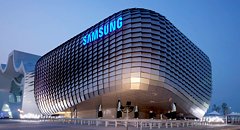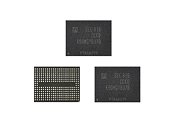Raevenlord
News Editor
- Joined
- Aug 12, 2016
- Messages
- 3,755 (1.15/day)
- Location
- Portugal
| System Name | The Ryzening |
|---|---|
| Processor | AMD Ryzen 9 5900X |
| Motherboard | MSI X570 MAG TOMAHAWK |
| Cooling | Lian Li Galahad 360mm AIO |
| Memory | 32 GB G.Skill Trident Z F4-3733 (4x 8 GB) |
| Video Card(s) | Gigabyte RTX 3070 Ti |
| Storage | Boot: Transcend MTE220S 2TB, Kintson A2000 1TB, Seagate Firewolf Pro 14 TB |
| Display(s) | Acer Nitro VG270UP (1440p 144 Hz IPS) |
| Case | Lian Li O11DX Dynamic White |
| Audio Device(s) | iFi Audio Zen DAC |
| Power Supply | Seasonic Focus+ 750 W |
| Mouse | Cooler Master Masterkeys Lite L |
| Keyboard | Cooler Master Masterkeys Lite L |
| Software | Windows 10 x64 |
Samsung is reportedly looking to increase its investment in the NAND space with a $2.6 billion increase to its annual NAND budget. The increase, which will bring the company's investment up to $9 billion, aims to increase production volume in what is building up to be the actual technology of choice for key players in the storage market.
Remember that for all the investment in increasing density and declining price per GB of competing mechanical solutions, we've just had notice of an HDD fabrication plant that's shutting down. Most of the funding will reportedly go into increasing production volume of 3D NAND memory. Should demand stay relatively stable, the (eventual) additional influx of memory chips to the market should help drive costs even lower - provided there's no funny business in price setting, of course.


View at TechPowerUp Main Site
Remember that for all the investment in increasing density and declining price per GB of competing mechanical solutions, we've just had notice of an HDD fabrication plant that's shutting down. Most of the funding will reportedly go into increasing production volume of 3D NAND memory. Should demand stay relatively stable, the (eventual) additional influx of memory chips to the market should help drive costs even lower - provided there's no funny business in price setting, of course.


View at TechPowerUp Main Site









